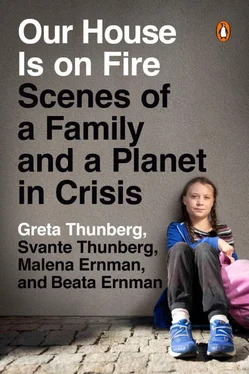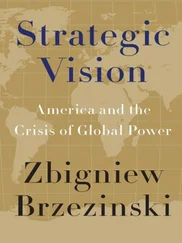Greta Thunberg - Our House Is on Fire - Scenes of a Family and a Planet in Crisis
Здесь есть возможность читать онлайн «Greta Thunberg - Our House Is on Fire - Scenes of a Family and a Planet in Crisis» весь текст электронной книги совершенно бесплатно (целиком полную версию без сокращений). В некоторых случаях можно слушать аудио, скачать через торрент в формате fb2 и присутствует краткое содержание. Город: New York, Год выпуска: 2020, ISBN: 2020, Издательство: Penguin Books, Жанр: Биографии и Мемуары, Публицистика, на английском языке. Описание произведения, (предисловие) а так же отзывы посетителей доступны на портале библиотеки ЛибКат.
- Название:Our House Is on Fire: Scenes of a Family and a Planet in Crisis
- Автор:
- Издательство:Penguin Books
- Жанр:
- Год:2020
- Город:New York
- ISBN:978-0-14313-357-5
- Рейтинг книги:4 / 5. Голосов: 1
-
Избранное:Добавить в избранное
- Отзывы:
-
Ваша оценка:
- 80
- 1
- 2
- 3
- 4
- 5
Our House Is on Fire: Scenes of a Family and a Planet in Crisis: краткое содержание, описание и аннотация
Предлагаем к чтению аннотацию, описание, краткое содержание или предисловие (зависит от того, что написал сам автор книги «Our House Is on Fire: Scenes of a Family and a Planet in Crisis»). Если вы не нашли необходимую информацию о книге — напишите в комментариях, мы постараемся отыскать её.
Our House Is on Fire: Scenes of a Family and a Planet in Crisis — читать онлайн бесплатно полную книгу (весь текст) целиком
Ниже представлен текст книги, разбитый по страницам. Система сохранения места последней прочитанной страницы, позволяет с удобством читать онлайн бесплатно книгу «Our House Is on Fire: Scenes of a Family and a Planet in Crisis», без необходимости каждый раз заново искать на чём Вы остановились. Поставьте закладку, и сможете в любой момент перейти на страницу, на которой закончили чтение.
Интервал:
Закладка:
But before we leave I get to hug her.
For a long time. She is crying desperately and it’s awful, but at least I get to feel like a mother who is needed by her child.
It’s the first time in ages that I get to hold my beloved little one in my arms. It’s like coming home after a life in exile.
It’s the best moment.
Of all.
SCENE 25.
The Low-arousal Approach
It’s autumn when Beata undergoes an evaluation for various neurodevelopmental disorders. We are having our last individual BUP meeting before the assessment with Beata and the school staff.
‘I remember one incident when it was time to vaccinate Beata at school and how she obsessed about this for weeks,’ Svante says. ‘Sometimes she would start crying uncontrollably because she was going to get that needle. So when the day finally came I went with her to school and followed her to the nurse and during that whole time we were in there, she didn’t show even the least bit of fear or discomfort. In fact she showed no expressions at all. She took off her sweater, extended her arm and took the syringe without batting an eye. She looked like she was watching a really boring movie on TV. She got her plaster, put on her sweater and went back to class as if what had happened was the most obvious and meaningless thing in the world. But when she came home in the afternoon she fell apart and had a long, angry outburst.’ Svante stammers a little as he tells this story, as he does when he’s upset.
Several different diagnoses are partly applicable, but nowhere does she fit with the criteria that are required to get a diagnosis.
‘You can have 90 per cent ADHD, 60 per cent autism, 50 per cent oppositional-defiant disorder and 70 per cent obsessive compulsive disorder,’ the psychologist explains. ‘So together it adds up to over 100 per cent neurodevelopmental disorder but it’s still no real diagnosis.’
When she’s done talking I discover that for the first time in fifteen years Svante is crying in public. He doesn’t cry often, but now he can’t stop.
‘You have to help her,’ he says, crying and sobbing. Again and again and again.
At last Beata is diagnosed with ADHD, with elements of Asperger’s, OCD and ODD.
If she hadn’t been given a diagnosis we, together with the school, would not have been able to make the necessary adaptations to help her function and feel okay again. If she hadn’t been given a diagnosis I wouldn’t have been able to explain to all her schoolmates’ parents and all the teachers and adults. If she hadn’t been given a diagnosis I wouldn’t have been able to keep working. If Beata hadn’t been given a diagnosis we would never have been able to write this book.
That’s how crass reality is. The difference is like night and day.
But now she has it and for her it is a fresh start, an explanation, a redress, a remedy.
Our daughter goes to a good school. A school with resources, knowledge and competent personnel. One of the very few that have started to take inclusion, functional differences and individual adaptation seriously. But it is still the individual, voluntary efforts by teachers that make the real difference. She has marvellous teachers who make everything work. She doesn’t have to do homework. We drop all activities. We avoid anything that may be stressful.
And it works. At home we learn that a low-arousal approach works best. Whatever happens we must never meet anger with anger, because that, pretty much always, does more harm than good. We adapt and we plan, with rigorous routines and rituals. Hour by hour.
We try to find habits that work. The unforeseen can of course lead to everything collapsing again, but if it does, then we start again from the top. We divide up. Each of us takes a child. We live in different places.
All families have a hero. Beata is ours. When Greta was feeling her worst it was Beata who had to take a few steps backwards and manage on her own. If she hadn’t done that we wouldn’t have made it. Without her, it wouldn’t have been possible.
I’m the one who is closest to her, because I’m her mother. And we are so uncannily alike. I’m the one who understands her best, and she knows that. Although she’d never, ever admit it.
Sometimes I make mistakes. Sometimes I’m the child. I can’t always cope with a low-arousal approach.
But I try.
And I love her to the end of time and beyond.
SCENE 26.
Higher Ground
The fact that our children finally got help was due to a great many factors.
In part it was about existing care, proven methods, advice and medication. But it was primarily thanks to our own toil, patience, time and luck, that Greta and Beata found their way back on their feet. Along with the fact that a number of individuals broke the rules and did things they weren’t supposed to do because they knew it was the right thing to do.
And we can’t continue like that.
A functioning society cannot rely on luck or civil disobedience. Most parents don’t have 250,000 followers on social media like I do… Most parents can’t be at home full-time without going on sick leave. Most parents – needless to say – don’t have the privilege and advantage of status and celebrity.
II
Burned-out People on a Burned-out Planet
I can’t take any more.
Or yes, of course I can, but you get the general idea.
– Nina HemmingssonSCENE 27.
Denial
The scent of fabric softener wafts from a ventilation grate on Fleminggatan.
Stockholm. January.
Piles of Christmas-tree graveyards on every corner.
A never-ending cold rain accompanies me along grey, slushy streets. During the Christmas holiday season the city is almost empty; everyone who lives here is somewhere else.
Everyone is in Los Angeles or Thailand. In Florida or Sydney. On the Canary Islands or in Egypt.
We Swedes are incredible. We stand up for almost everything that can be stood up for. We fight for refugees and vulnerable people and against injustice everywhere.
From an ecological perspective, however, we are very far from incredible – and people like me are among the worst there is.
‘You celebrities are basically to the environment what anti-immigrant politicians are to multicultural society,’ Greta says one morning at the breakfast table.
It’s not a nice thing to say to someone who really believes in cultural diversity. But I guess it’s true. Not just of celebrities, but of the vast majority of people. Everyone wants to be successful, and nothing conveys success and prosperity better than luxury, abundance and travel, travel, travel.
‘At the same time, if I get sick or unpopular I won’t get a penny,’ I say in my defence. ‘Moral responsibility can’t always be demanded from you just because you have certain opportunities to make yourself heard and set a good example.’
But Greta doesn’t agree. She scrolls through my Instagram feed. She’s angry.
‘Name one single celebrity who’s standing up for the climate! Name one single celebrity who is prepared to sacrifice the luxury of flying around the world!’
‘They fight for other things,’ I say, without coming up with any useful arguments whatsoever.
‘Okay! Name a single thing that they are fighting for – except possibly against full-scale nuclear war – that we wouldn’t be able to fix later on in the future. If we really wanted to.’
She’s right, of course. If we destroy the climate we’ll never be able to repair it, and soon future generations – or present ones for that matter – won’t be able to make everything right, and undo our mistakes, however much they might want to.
Читать дальшеИнтервал:
Закладка:
Похожие книги на «Our House Is on Fire: Scenes of a Family and a Planet in Crisis»
Представляем Вашему вниманию похожие книги на «Our House Is on Fire: Scenes of a Family and a Planet in Crisis» списком для выбора. Мы отобрали схожую по названию и смыслу литературу в надежде предоставить читателям больше вариантов отыскать новые, интересные, ещё непрочитанные произведения.
Обсуждение, отзывы о книге «Our House Is on Fire: Scenes of a Family and a Planet in Crisis» и просто собственные мнения читателей. Оставьте ваши комментарии, напишите, что Вы думаете о произведении, его смысле или главных героях. Укажите что конкретно понравилось, а что нет, и почему Вы так считаете.






![Корнелл Вулрич - Murder at Mother’s Knee [= Something That Happened in Our House]](/books/398097/kornell-vulrich-murder-at-mother-s-knee-somethin-thumb.webp)





